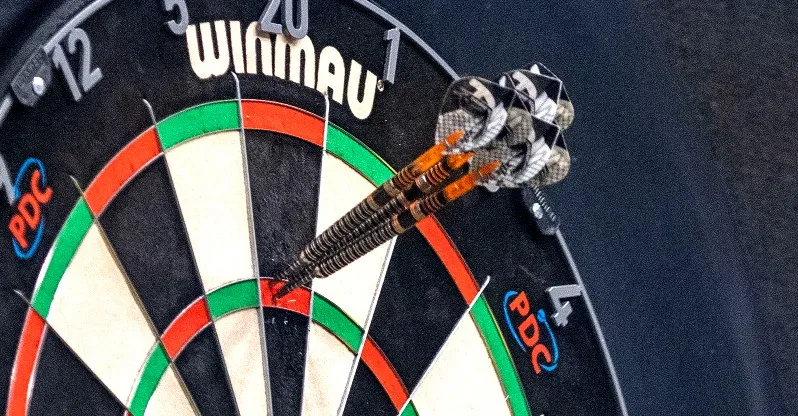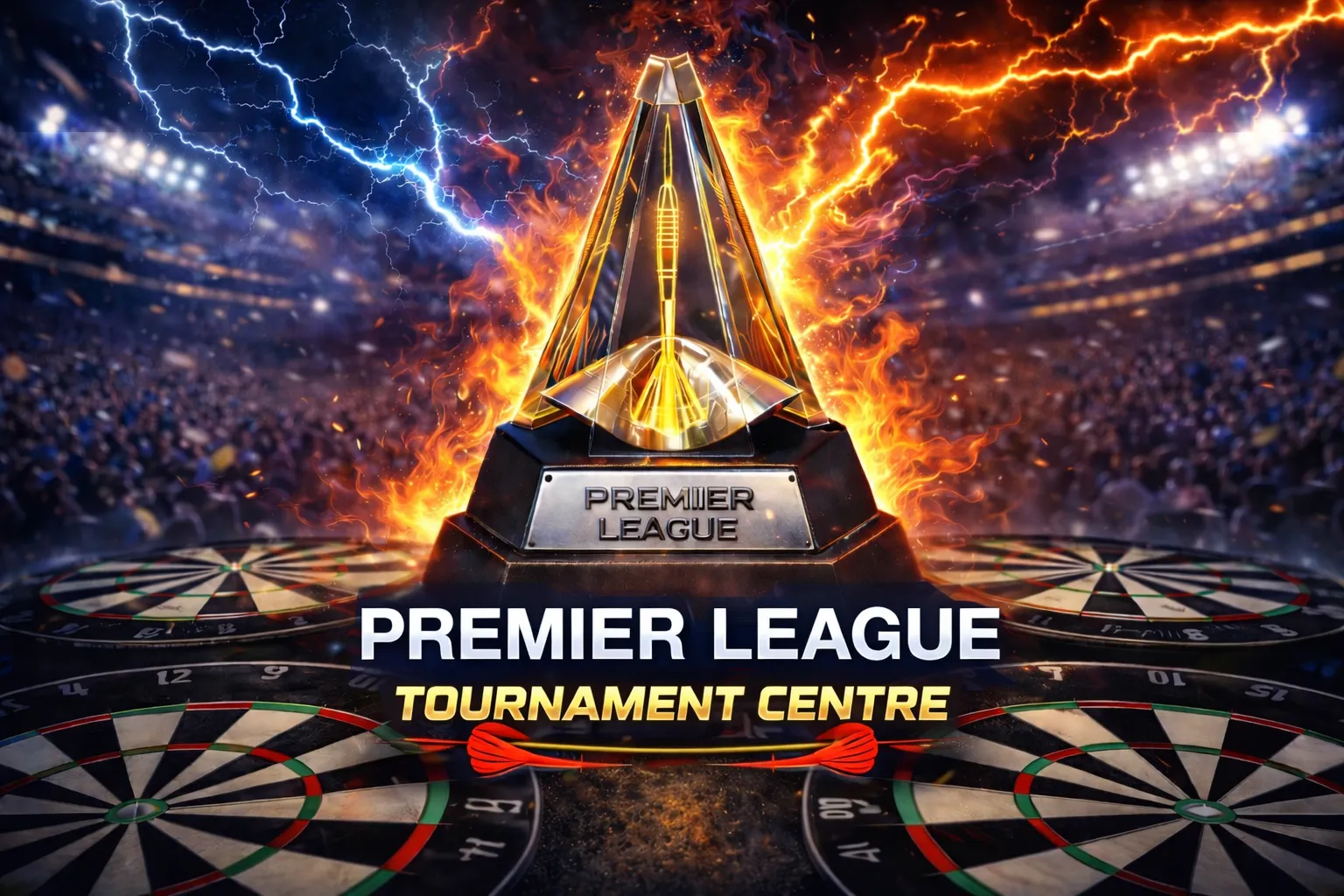How have changes in Irish gambling legislation affected sports betting
OtherTuesday, 25 March 2025 at 16:01

Ireland has undergone a sweeping overhaul
of its gambling legislation in recent years. The country has had to work
diligently to modify outdated rules for the modern world, especially with the
growth of online sports betting in recent years.
This culminated in the Gambling Regulation
Act 2024 being passed, which brought significant changes to the way sports
betting was regulated. But what has changed in the sports betting world in
Ireland, why was the new legislation needed and what does it mean for the
future of the industry and its customers?
Badly needed reform
Irishluck.ie has kept a close eye on
changes to gambling legislation over the years, and they saw that prior to
2015, the laws governing Ireland’s gambling industry came from the Gaming and
Lotteries Act 1956 and the Betting Act 19311. Being that they were
59 and 84 years old at that time, they were badly out of date and reform was
sorely needed to keep up with the changing pace of the sector.
These laws just simply couldn’t account for
the modern realities of the gambling industry. Online betting, international
operators and consumer habits that have changed vastly over the years just
weren’t included in legislation, and that had to change. People needed to be
protected from rogue operators, so they didn’t lose money on bets where there
was never any intention for winnings to be paid out in an increasingly online
world. The
Betting (Amendment) Act 2015, which made amendments to the original 1931 act,
brought in legislation that focused on bookmakers and ensuring they were
properly licensed to operate.
The 2015 act legislated that any person
operating without the appropriate license required as a bookmaker either in
person or remotely would be guilty of an offence. This was the first time that
online operators had been targeted by law in the country. The punishments were
severe, with fines of up to
€150,000 and up to five years in prison2 facing offenders.
Four years later, the Gaming and Lotteries
(Amendment) Act 2019, which proposed changes to the 1956 act, made it into law.
The Minister for Justice David Stanton, who proposed the bill noted at the
time, spoke about why the new act was needed and what he hoped it would
achieve:
“A
modern and effectively regulated gambling environment will ensure, to the
greatest extent possible, that gambling will be a safe, fair and entertaining
activity for the majority of those who choose to take part in it. We must
ensure that it will provide enhanced consumer protection for players while
limiting to the greatest extent possible the harmful effects on young people
and those who may be susceptible to addiction3.”
Although these two amendment acts began to
tackle the issues faced thanks to the rise of online operators, a whole new act
was introduced just five years later with the Gambling Regulation Act 2024.
This was the act that brought into existence the Gambling Regulatory Authority
of Ireland (GRAI). This independent body is now responsible for overseeing
licensing, compliance and consumer protections in both the physical and online
gambling worlds.
New laws affecting sports betting
The Gambling Regulation Act 2024 also saw
several changes brought into effect that deal with sports betting. The act has
consolidated and updated previous gambling legislation in the country and seeks
to address modern challenges faced in the industry.
The introduction of GRAI was the most
sweeping change brought about by the act. Its remit is to focus on wellbeing
and public safety when it comes to gambling4. This independent
regulator will cover betting both in person and online with powers to regulate
gambling, advertising, websites and apps. Those who wish to offer sports
betting in Ireland — whether they are domestic or international operators —
must now be licensed by GRAI as a legal requirement.
GRAI has already made changes in the way
the gambling industry in Ireland is allowed to advertise and market itself.
There are now severe restrictions on the advertising of gambling services, with
no adverts related to the industry allowed either on TV or radio from 5:30 am
to 9:00 pm. In addition, adults now need to actively opt-in to see gambling
advertisements online and there are provisions in the Act to ban gambling
advertising on social media5.
The Act provides greater consumer
protection by introducing deposit limits and mandatory affordability checks.
The onus is on betting operators, including those offering sports betting, to
‘Know Your Customer’ and follow procedures to assess their players’ financial
capabilities before they place any bets. Self-exclusion tools have been
enhanced, which means gamblers can take matters into their own hands and choose
to ban themselves from betting platforms for a set period.
The GRAI also has the power to enforce
operator interventions for at-risk gamblers. These customers would be
identified through betting patterns. If problem behaviour was spotted, GRAI
could then intervene. In a country where one in 30 adults suffer from problem
gambling6, increasing consumer protections and keeping people from
harm is of the utmost importance.
Betting operators will now also have to
contribute to a Social Impact Fund. This fund will support initiatives to
attempt to reduce problem gambling in the population. It will offer treatment
services as well as educational campaigns to keep people informed and aware of
the risks associated with gambling.
As far as sports betting operators, one of
the biggest effects the Act has had is to limit live or in-play betting.
Popular with many sports fans, these options allow you to continue to bet after
a sporting event such as a football match or Gaelic Athletic Association game
has started. Due to concerns that in-play bets can lead to impulsive gambling,
operators must use additional safeguards to curb that risk. Time outs,
restrictions on accounts displaying problematic behaviour and complete
exclusions can be applied, but these are still down to the bookmakers
themselves to decide on and enforce.
Impact on the sports betting industry
Although the legislation only passed into
law in 2024, it’s already had a profound impact on betting companies, including
those offering sports betting. Some overseas operators have left the Irish
market completely due to the increased regulation. With responsible gambling at
the heart of the Act, some bookmakers have invested in new technology,
including AI, to track customers’ behaviour and spot problematic patterns more
quickly than before.
This has meant that some smaller operators
have struggled to cope with the added costs of compliance. Those already
promoting responsible gambling as par for the course have found things easier.
There is now a more consolidated gambling industry in Ireland with fewer
operators, but those that remain are more accountable to help players stay safe
when gambling.
New restrictions on sponsorships between
sports teams and betting operators have caused major changes as well.
Previously, many football, rugby and horse racing teams relied on betting
company sponsorships for crucial funding. They are now fighting to find
alternative sponsors who know that they should be able to get the same
marketing opportunities that gambling operators did. The GAA proved to be ahead
of the game in this regard as it voted to ban all gambling sponsorship in the
sport in 20187.
This has caused particular concern in the
horse racing industry, which is very closely tied to the betting world. The
Irish government has allocated a portion of gambling taxes to help support the
racing industry, as it is a huge part of Irish culture and the country’s
sporting success. The 2025 budget set out by the Irish government has seen its
support of the horse racing industry increase by more than €3m to €79.28m8.
The verdict
Advertorial: The regulations governing sports betting
and the wider gambling industry in Ireland are still relatively new, so the
long-term impact of these changes won’t be known for some time. Operators have
been challenged to provide a more consumer-focused offering with an emphasis on
responsible play. The ones who last will no doubt be the ones who embrace that
ethos while others trying to skirt regulations or find loopholes might find
that they’re quickly bearing the brunt of the GRAI.
The GRAI itself is expected to refine the
regulations as needed based on what the future holds. Just as the 1956 and 1931
Acts were vastly out of date when they were amended, the 2024 Act will no doubt
be seen as obsolete one day. The advantage now is that the GRAI can update and
amend the regulations as needed to keep up with an ever-changing world.
Overall, the changes in Irish gambling
legislation have reshaped the sports betting landscape, promoting responsible
gambling while maintaining the integrity of the industry. As the sector adapts
to the new regulatory framework, Ireland has set a precedent for other
jurisdictions seeking to modernise their gambling laws in an increasingly
digital world.
- Ireland's New Gambling Laws Expected to be Published This Year, written by Dermot Heathcote, published by Irishluck.ie
- Betting (Amendment) Act 2015, written by Oireachtas, published by irishstatutebook.ie
- Minister Stanton announces Government approval for establishment of gambling regulatory authority, written by Department for Justice, published by gov.ie
- Gambling Regulatory Authority of Ireland, written by Citizens Information, published by citizensinformation.ie
- Gambling advertising and sponsorship to be restricted as landmark legislation passed, written by Marie O’Halloran, published by irishtimes.com
- ESRI estimates 1-in-30 adults in Ireland now suffers from problem gambling, written by Behavioural Science, published by esri.ie
- GAA votes to ban gambling sponsorship deals, written by RTE, published by rte.ie
- Irish racing to receive increased funding from government in 2025 as budget reveals support of €79.28m, written by David Jennings, published by racingpost.com
claps 0visitors 0
Just in
Popular news
Latest comments
- what a load of crocmedinabello19-02-2026
- So,it's a rubbish league,waste of time. Just put 8000 people in a building every Thursday,get them all drunk,and wonder why it's a complete joke. And forget every other player apart from 8. It's a ridiculous,inane,and needless so called competition.rick6718-02-2026
- Sorry,I've never been a professional darts player,but obviously from your comment,you have. So, going to your reply, you're blaming the management,not the player? So in that respect,he should get a different manager? That's basically all your comment is saying. Don't let him do money makers,which Barney said is easy money, instead of tournaments? Shake hands instead of trophies? Well I guess the manager knows best,as he has a big cut!rick6716-02-2026
- Sorry Mr rick67, erm what punditry credentials do you have to comment on a pundit? There's a reason why many top professionals have management teams. They know how to manage schedules etc so the players can just play. And how is Edgar wrong? Last year MVG failed to qualify by missing too many tournaments and underperforming. He's repeating the error this year so Edgar is right In calling this out.BandB15-02-2026
- Just get of Mardle,I didn't pay to watch him,and I don't want him for free! Let's see,how many world champions,either code,did you win? None! Now mason does it more as a player who was a floor player than you were putting pineapple on your shirt. Mardle,just go,you over inflated ego may follow. Tell you what,get on the seniors tour,and show everyone how good you weren'trick6715-02-2026
- Sorry Mr Edgar,erm what have you actually won to comment? Mvg has had his issues,but you have won a grand total of what? I make that nothing. So how can your comment be justified? Let him do what he likes,you do what you like, and we'll see what you win nextrick6715-02-2026
- Seems to be having a moan for no reason and using “Do-Gooder” as an insult makes no sense. It literally means someone who does good things!Wonker12-02-2026
- Mickey Vs mensur for the world champion? It's starting tomorrow,finishes in January!!rick6711-02-2026
- Oh well that's it then. Both these goofs will expect and demand premier league darts next year after this.richieburnettrocks10-02-2026
- Sincere apologies to Richie, I forgot yesterday, slightly belated but Happy Birthday to the great man. Certainly looking good for 59richieburnettrocks08-02-2026
Loading





